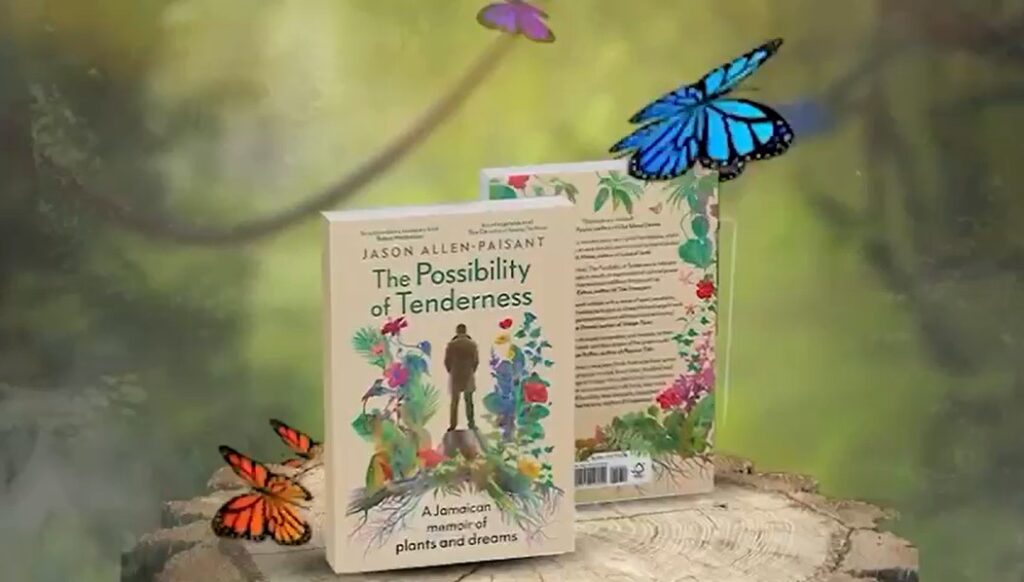
The Possibility of Tenderness is a personal history narrated through the lens of the ‘grung’ and plants. It’s also a people’s history of the land, a family saga, an archival detective story through time. It’s the migration tale of a young scholar who arrives in Britain from rural Jamaica to study at Oxford to achieve ‘upward social mobility’ and who now lives in Roundhay Leeds. Suddenly, amidst his journey of dreams and class aspiration, the plants and people of his native district, Coffee Grove, begin to offer different ways of living, alternative dreams, and the possibility of tenderness and the permission to roam England.
Marrying the local and the familial with global history and unfolding as a timely and immersive tale of land, environment, and the world of plants, The Possibility of Tenderness reveals how the history of a tiny rural village in a mountainous region of Jamaica is interlinked with that of modern Britain. And, also what that rural village can teach us about leisure, land ownership and reclamation today.
***
Having engaged with audiences around the world in the wake of the launch of The Possibility of Tenderness, the author provides some insight into the various ways that readers are connecting with the work:
- Black masculinity and vulnerability – Many readers find themselves moved by how the book reimagines and complicates traditional narratives around Black masculinity, foregrounding tenderness, reflection, and emotional depth.
- The relationship between land and identity – The book’s sensuous engagement with landscape—Jamaica, in particular—offers readers a way of thinking about how geography shapes inner life and memory.
- Diaspora and belonging – In the events I’ve done so far, many readers from the Caribbean or wider diaspora, are finding that the book’s reflections on home, displacement, and cultural inheritance are speaking to their own fractured or layered identities.
- Fatherhood and intergenerational connection – The presence or absence of the father, and the exploration of paternal lineage, resonates with both male and female readers (across generations), touched and shaped by this familiar and familial legacy and its emotional inheritance. They talk about how this book moves from pain to shape its own mythology of the self.
- The lyric form itself – Lovers of poetry and hybrid prose connect with how the book stretches the boundaries of genre, using form to echo the emotional cadences of tenderness and memory.
- Postcolonial and decolonial perspectives – Some readers engage with the book through its subtle engagement with the legacies of colonialism, particularly how they inflect language, land, and self-perception.
- Queerness and sensuality – Even if not explicitly framed as a queer text, the attention to touch, perception, and intimacy has resonated with queer readers who recognize the importance of softness as resistance.
***
Read the Q&A with US publisher Milkweed Editions here: https://milkweed.org/blog/the-possibility-of-tenderness-author-qa-with-jason-allen-paisant
Read my interview for The Observer Book Review here: https://www.theguardian.com/books/2025/mar/22/poet-jason-allen-paisant-the-possibility-of-tenderness-thinking-with-trees
Read the TLS Book review here: https://www.the-tls.co.uk/regular-features/in-brief/the-possibility-of-tenderness-jason-allen-paisant-book-review-lindsay-johns
Read the Oxford Review of Books review here: https://www.the-orb.org/post/re-rooting